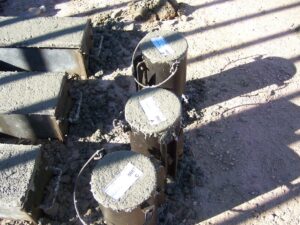Quality control is the process of identifying and preventing defects in products or services. It involves inspecting and testing products during production or manufacturing to ensure they meet the required standards. Quality control procedures ensure customers receive products that meet their expectations.
Quality control is a critical component of admixture manufacturing. Concrete admixture manufacturers require their admixtures to improve concrete performance and ensure consistency in product quality. It helps to ensure that the admixture meets safety and performance standards, such as protecting the structure from water ingress, increasing concrete quality and strength, and even reducing the cost of construction.
In this blog post, we will explore the importance of quality control in admixture manufacturing. But before that, we will discuss briefly how quality control is performed in admixtures by concrete admixture manufacturers.
How is quality control performed in admixtures?
The performance of an admixture is usually evaluated by utilising trial batches of concrete containing admixtures and comparing them to those of plain concrete. The type of testing done by concrete admixture manufacturers depends on the type of admixture.
For liquid admixtures, density is measured using a hydrometer. The hydrometer measures the specific gravity of the admixture, which is then compared to the specific gravity of water. This helps determine the effectiveness of the admixture in terms of its ability to increase the workability of the concrete mix. Other tests such as slump tests and compressive strength tests are also used to evaluate the performance of an admixture.

For solid admixtures, a cone penetrometer is used to measure the consistency of the concrete mix. To measure the effectiveness of the admixture on the concrete’s strength and durability, compressive strength tests are performed. Additionally, an absorption test is conducted to measure the amount of water the concrete can absorb.
Testing for mineral admixtures depends on whether the mixture uses fly ash or slag. Fly ash and slag have different properties and require different tests. For example, fly ash is tested for its fineness using tests such as color comparison, and the simple foam index test while slag is tested for its soundness and strength. Additionally, concrete with mineral admixtures requires additional tests to measure the effect of the admixture on the concrete’s strength and durability.

Importance of quality control in admixture manufacturing
Meet the required standards and specifications
Admixtures are often used in concrete structures such as bridges, dams, and roads, where even slight variations in the admixture can have devastating consequences. Concrete admixture manufacturers take up measures help to detect and correct any deviations from established standards. This ensures that the admixtures are safe, effective, and meet the customer’s needs.
Minimize product failure and liability risks
If admixtures do not meet the required standards, concrete structures can crack, shrink, or deteriorate, leading to structural damage and costly repairs. In extreme cases, they can even result in legal liabilities and damage a company’s reputation. Quality control measures help to identify and prevent such risks.
Ensure consistency and reliability
Admixtures are often used over a long period. Consistency in the properties of the admixtures is critical to ensure uniform properties and performance. Quality control helps to ensure that the admixtures are consistent in their properties and performance, making it easier to predict concrete behaviour in the field.
Improves efficiency and profitability
Quality control measures help to reduce the wastage of raw materials, minimize downtime due to equipment failure, and improve the productivity of the manufacturing process. This results in higher yields, lower production costs, and increased profitability for concrete admixture manufacturers.
In conclusion, quality control is an essential component of admixture manufacturing. Quality control ensures that the admixtures are created according to the required pre-set standards and manufacturer’s specifications. This helps to ensure that the admixture meets the customer’s expectations.




